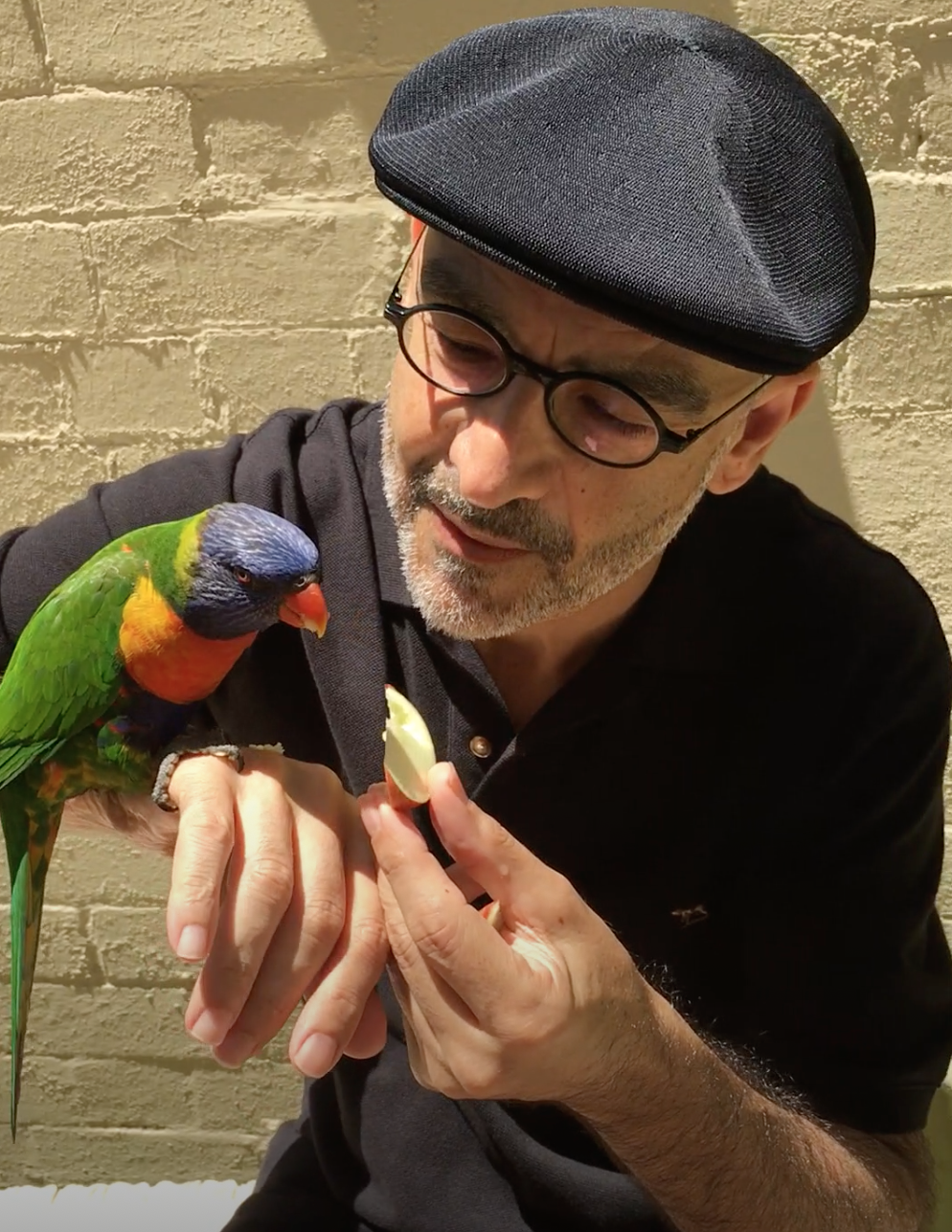Five minutes with Joseph Pugliese
We catch up with MCCALL Professor Joseph Pugliese who’s recently published book Biopolitics of the More-Than-Human: Forensic Ecologies of Violence has been nominated for the American Studies Association’s John Hope Franklin Publication Prize, which “honors the most outstanding book published in American studies.”
 Tell us a bit about your current research and what makes it so important?
Tell us a bit about your current research and what makes it so important?
My research focuses on sites harrowed by armed conflict and settler colonial occupation. I examine these locations through the lens of biopolitics, which refers to a political regime that effectively determines who is worthy of living and flourishing and, conversely, who can be killed or left to die with impunity. In this book, my concern is to bring into focus more-than-human subjects – trees, animals, water, air and soil – that are also victims of biopolitical violence within these contexts, but that fall outside the purview of international humanitarian law or international environmental law and armed conflict. Within these sets of laws, the more-than-human can only be indexed in terms of damage done to “property.” In order to stake the claim that more-than-human entities are worthy of ethico-legal consideration within these contexts of violence, I take the term forensic ecology in new directions. In traditional understandings of forensic ecology, animals, plants and soil are equivalent to negative space in a painting: they are mere background to the positive figures (the human victims of criminal acts) that are seen to dominate the setting. Animals, plants and soil are reduced to forensic supplements that will help solve the crime. They are not themselves seen as the victims, for example, of a military strike or a criminal act. My intention is to challenge and overturn this relationship of (human) figure to ground (all other-than-human entities), and to bring into focus the broad spectrum of entities that may lay claim to speaking an evidentiary truth about a particular crime under the aegis of ecological justice.
What inspired you to focus on this work?
My inspiration comes from my profound affective engagement with the more-than-human world and a number of Indigenous philosophies – Indigenous Australian and Native American in particular – that articulate worldviews predicated on the concept of relationality. Winona LaDuke, for example, speaks of how the ethic of “all our relations” works to encompass all the entities of the earth as worthy of ethical consideration. Critically, this ethic is enshrined in Indigenous law: as Ambelin Kwaymullina and Blaze Kwaymullina underscore, “Law extends beyond human beings to all life in country, with the relationship – rather than the species – being the primary creator of legal categories.” These Indigenous philosophies overturn the entrenched anthropocentrism of European ethics and law, precisely as they antedate all the current European configurations that are attempting to address issues of ecological justice (critical animal studies, the new ethology, new materialisms and so on) – configurations, I would add, that often neglect or efface these acutely relevant Indigenous philosophies through acts that are tantamount to epistemic terra nullius.
What is a recent achievement you're most proud of?
I have established a type of sanctuary in my small suburban backyard where a wonderful array of birds drop in and make themselves at home: ravens, lorikeets, noisy miners, crested pigeons, spotted doves and wattle birds. They give me a sense of hope and joy. There are two magisterial ravens that are generously educating me on bird lore and a cheeky lorikeet who is tutoring me on parrot pranks.
Outside your own, what area of work or research in the Faculty of Arts inspires or intrigues you?
The work in the Faculty of Arts that most inspires me is being done by the Indigenous Studies Department, led by Professor Bronwyn Carlson. Professor Carlson and her colleagues are doing outstanding work across the intersecting domains of research and learning and teaching. Their work is foundationally underpinned by a social justice ethos that is working to expose and address structural violence embedded within Australian society and many of its key institutions. As an example, Professor Carlson recently co-authored a case study on Indigenous Femicide for our Deathscapes: Mapping Race and Violence in Settler States. The case study brings into graphic focus the systemic failure of Australian law to realise justice for the innumerable Indigenous women who have not only died in custody, but who have been sexually assaulted and murdered in civilian spaces – on the road, in parks, on beaches. These cases of gendered violence against Indigenous women are rarely covered by the Australian media. The case study underscores the racialised double standards that inscribe both Australian law and media.
What is on your agenda for 2021?
A modest agenda: to continue to maintain hope and to work with my colleagues towards realising a more just world.